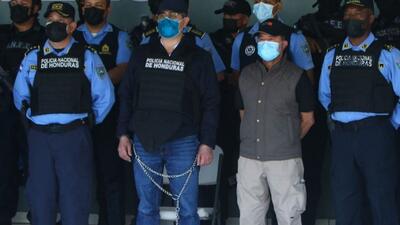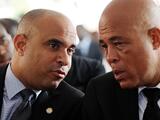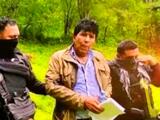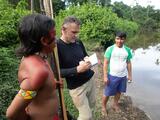Former Honduran president Hernandez loses appeal against extradition

The Honduran Supreme Court on Monday ratified a judge’s decision to grant the extradition of former president Juan Orlando Hernández to the United States on three drug trafficking and weapons charges.
The decision by the court ends a six-week saga that began with the arrest of Hernández on February 15, as well as years of speculation over whether the once untouchable former president would be forced to face the accusations in a U.S. federal court.
Hernández has been the subject of drug trafficking allegations since his brother, former legislator Juan Antonio “Tony” Hernández was arrested on drug trafficking and weapon’s charges in November 2018. Tony Hernández was later convicted in a New York federal court and sentenced to life in prison.
Upon arriving in the United States, the former president will be presented before the same court in the Southern District of New York where his brother was convicted. If convicted by a jury, Hernández, 53, would face a mandatory-minimum sentence of 40 years in prison.
Hernandez expected to be transported swiftly to New York
Honduran officials told Univision News on the condition of anonymity that officials from the Drug Enforcement Administration appear eager to pick up their prized capture and are expected to waste no time in sending a plane to Honduras for Hernandez’s transport to New York.
In a hand-written letter on notebook paper published this morning by his wife, Hernández reaffirmed his innocence. “I’m the victim of revenge and a conspiracy,” Hernández wrote from the cell in a special forces base on the outskirts of Tegucigalpa where he’s been held since his arrest. “I’m certain that God will do me justice.”
At the beginning of his first term as president in 2014, Hernández was considered one of the top U.S. allies in the region and was lauded by U.S. officials for his apparent efforts to combat drug trafficking, including ironically, his role in the passage of a constitutional reform in 2012 while he was president of Congress that permitted for the first time the extradition of Honduran nationals to the United States.
“I knew that this fight wouldn’t be easy, that there would be risks. I also believed that with the sincere will of the country’s institutions and sectors, as well as the active assistance of our partner allies it would be a win-win,” said Hernández in the letter, alluding to his cooperation with the U.S. authorities who have since turned their back to him.
But according to the accusations against Hernández outlined in the extradition request sent by the United States, as well as during previous trials of alleged co-conspirators, the former president launched a battle against some drug traffickers, while protecting others who were aligned with his brother and political party.
Prosecutors allege that as early as 2006, Hernández began receiving illicit campaign contributions from drug traffickers in exchange for protection from law enforcement and safe passage of their cocaine shipments through the country. The contributions, or “bribes”, rose with time to reach millions of dollars as Hernández climbed the political ladder.
During his first campaign for president in 2013, Hernández allegedly received millions of dollars from drug traffickers, including most famously from the notorious former leader of the Sinaloa Cartel, Joaquin “El Chapo” Guzmán.
Several of the drug traffickers who Hernández allegedly provided protection to were captured outside of Honduras or turned themselves into the DEA and are now cooperating with prosecutors in exchange for a reduction in their sentences – a fact that Hernández has often portrayed as an incentive to lie.
It appears unlikely that prosecutors would offer a cooperation agreement to Hernández or that he would plead guilty. In that event, a trial could be held as soon as by the end of this year or early 2023.




